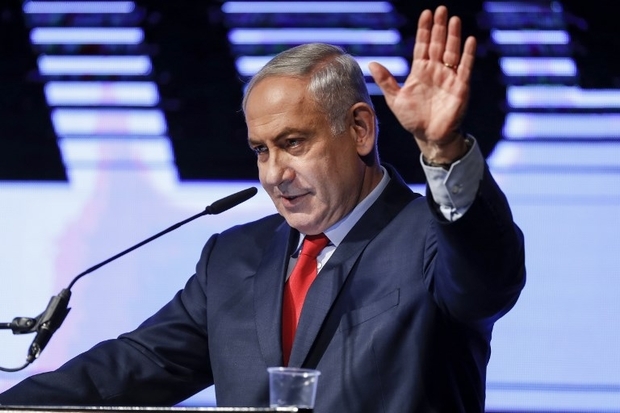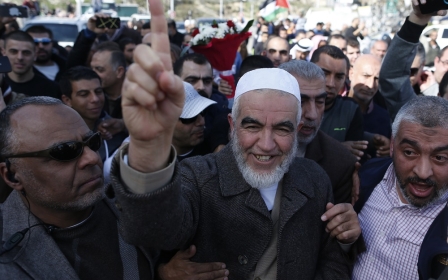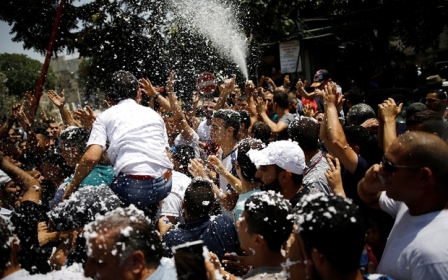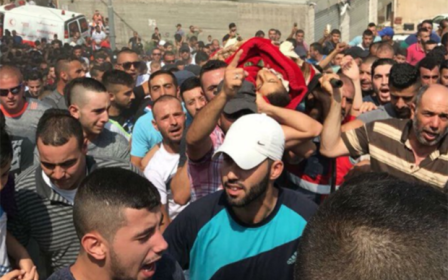Israel to allow MPs to visit flashpoint Jerusalem holy site

Benjamin Netanyahu will relax a ban on politicians visiting the Jerusalem holy site home to the al-Aqsa mosque, the Israeli prime minister's office said on Thursday.
The announcement comes a month after East Jerusalem was rocked by violence after Israel intensified its security measures at the entrances to Haram al-Sharif, which houses al-Aqsa mosque and the Dome of the Rock.
An official told AFP that Israeli MPs will be permitted to visit the site that has been a flashpoint between Muslims and Jews in a one day trial next week. Haram al-Sharif is referred as Temple Mount by Jews.
"In consultation with security officials, Prime Minister Benjamin Netanyahu decided to open the Temple Mount to MPs' visits, for one day at this stage, on Tuesday, August 29," the member of his office said.
"The decision was taken in light of the improvement in the security situation at the site," he said. "Decisions on the issue will continue to be made in accordance with assessments of the security situation."
Netanyahu instructed police in October 2015 to bar MPs from visiting the site in the Old City of Israeli-annexed east Jerusalem.
It was meant to help calm unrest that erupted in part over Palestinian fears that Israel was planning to assert further control over the compound.
Netanyahu has said repeatedly that he is committed to the status quo there.
The site is the holiest site in Judaism and the third-holiest in Islam and claimed by both Muslims and Jews.
Jews are allowed to visit the compound but not pray there, and the site has been the scene of regular confrontation over any attempt to flout the rule.
Yehuda Glick, an MP from Netanyahu's right-wing Likud party, had in March petitioned Israel's supreme court against the ban on members of the Knesset, the Israeli parliament, visiting the hilltop site.
On 4 July, the justice ministry said Knesset members would be allowed access for a "pilot number of days" starting on 23 July.
But on 14 July, three Israeli Arabs emerged from the mosque compound with automatic weapons and shot dead two policemen nearby before being shot dead by other officers.
Israel responded by installing metal detectors and other security equipment at the entrance but that triggered days of protests.
Seven Palestinians were killed by Israeli security forces after the clashes turned bloody following Friday prayer protests outside the Old city in East Jerusalem.
Palestinians feared the metal detectors would lead to the Israelis taking further control of the al-Aqsa compound.
Hundreds of Palestinians held prayer-protests and refused to enter the site until Israel lifted its security restrictions at al-Aqsa mosque.
During the protests, a Palestinian broke into a home in a Jewish settlement in the occupied West Bank and stabbed four Israelis, killing three.
The crisis ended after the Islamic Waqf, the body that governs the al-Aqsa compound, told Palestinians to stop the boycott of the site following Israel's decision to remove its security restrictions.
In 2000, former Israeli prime minister Ariel Sharon sparked months of violence which led to the Second Intifada after he visited the Al-Aqsa mosque.
Middle East Eye propose une couverture et une analyse indépendantes et incomparables du Moyen-Orient, de l’Afrique du Nord et d’autres régions du monde. Pour en savoir plus sur la reprise de ce contenu et les frais qui s’appliquent, veuillez remplir ce formulaire [en anglais]. Pour en savoir plus sur MEE, cliquez ici [en anglais].




